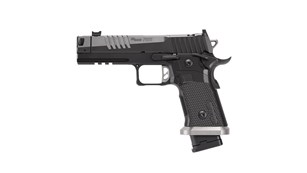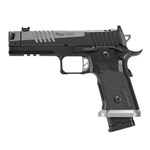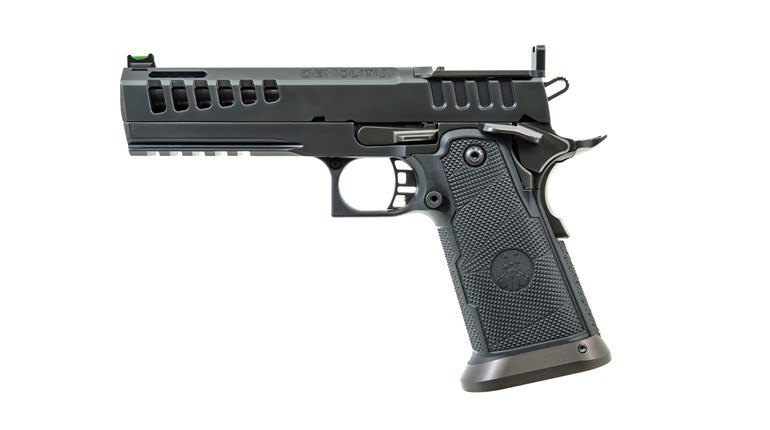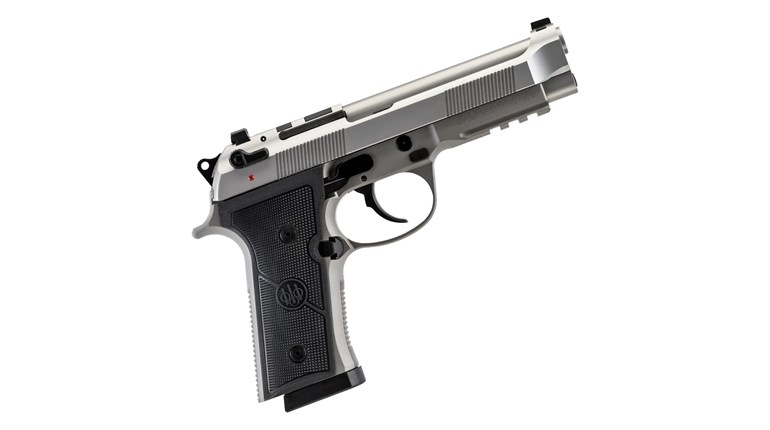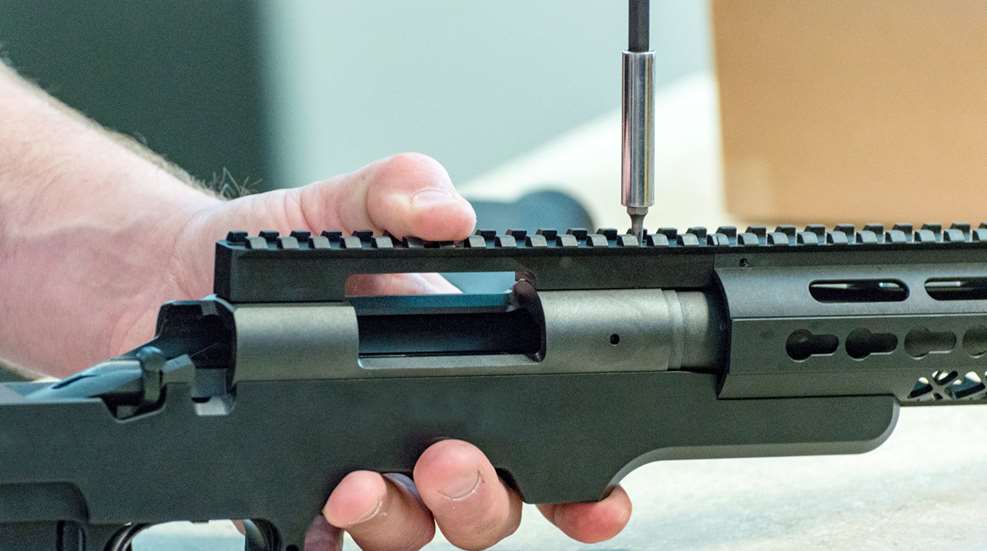
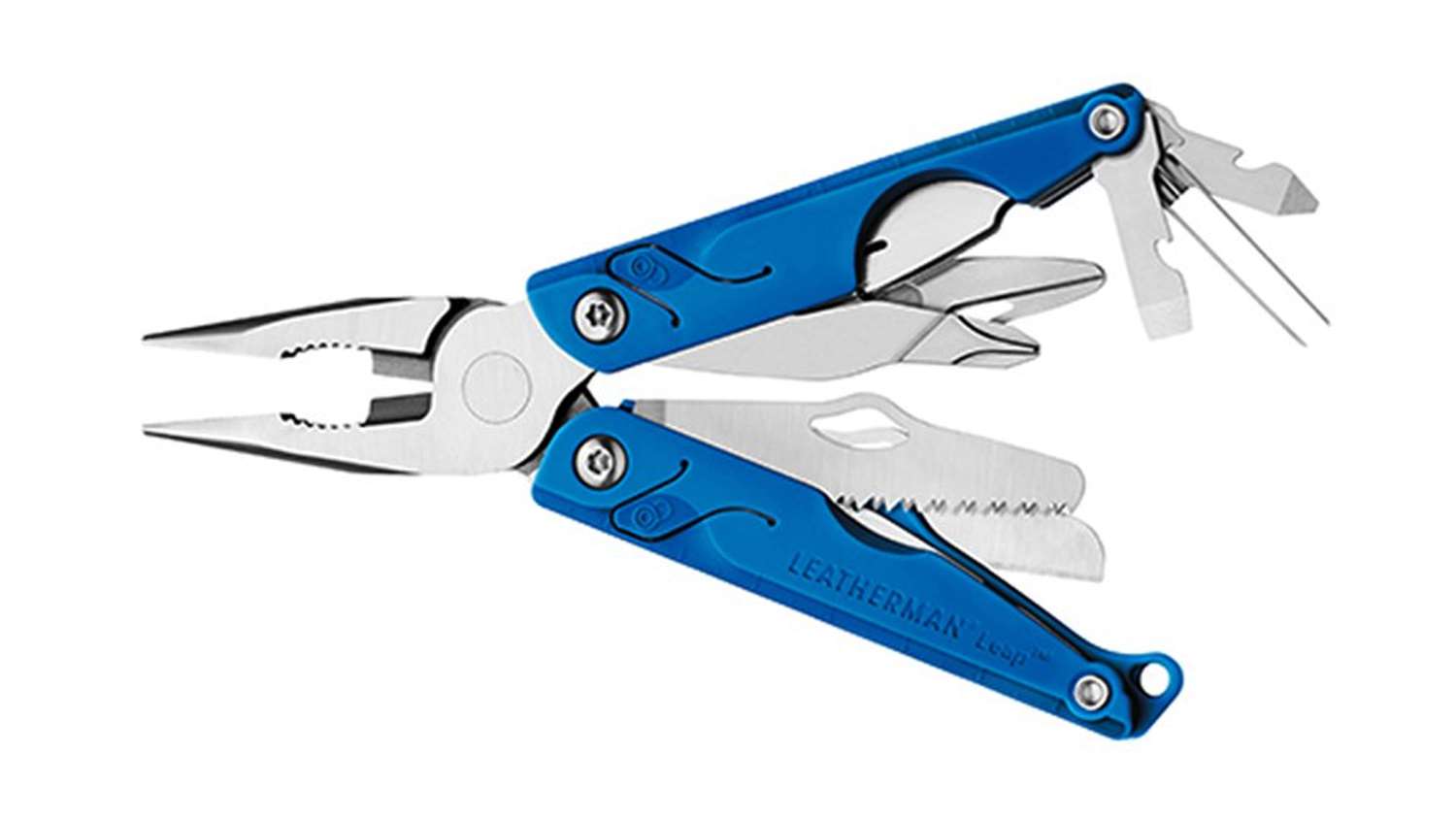
The first and most important thing you need is proper eye protection. Ordinary shooting glasses won't do; while they generally prevent spent casings, propellant gases or other matter from blowing back into your eyes when you touch off a round, they offer little protection against the randomly-flying metal and wood particles that are produced by a grinding wheel, Dremel tool or even a file. Wraparound glasses are a good solution; goggles that fit tightly against the face are best.
Wood particles and metal shavings aren't great for your lungs, either. You may want to have a supply of inexpensive paper or fiber facemasks for projects where you'll be doing a lot of sanding or grinding. A first-aid kit is also good to have around, as minor cuts, abrasions and the like are pretty much inevitable in gun work. Finally, I recommend that long-haired readers keep a hair clip or similar device in their shop to keep their hair up and away from the work to prevent a serious injury.
There are a number of general tools you will use for a variety of different gun jobs. A good-quality bench vise with five- or six-inch jaws can be used to hold everything from a tiny pin to a barreled rifle action. It should be rock-steady when it is tightened down, and its jaws should have flat faces, not serrated or checkered ones (some vises have reversible jaws with both types of surfaces). To protect gun parts from the steel jaws, you should also have several pieces of thick leather and/or special lead, bronze or rubber-faced jaws. Powdered rosin may help increase the friction between the jaws and the object being held.
When you are closely inspecting gun components, or when doing precise handwork on a tiny part, the naked eye sometimes isn't enough. In these situations you will need a magnifier such as a loupe or a magnifying glass. A battery-powered bore light is also useful to illuminate the bore and any deep crevice or blind hole.
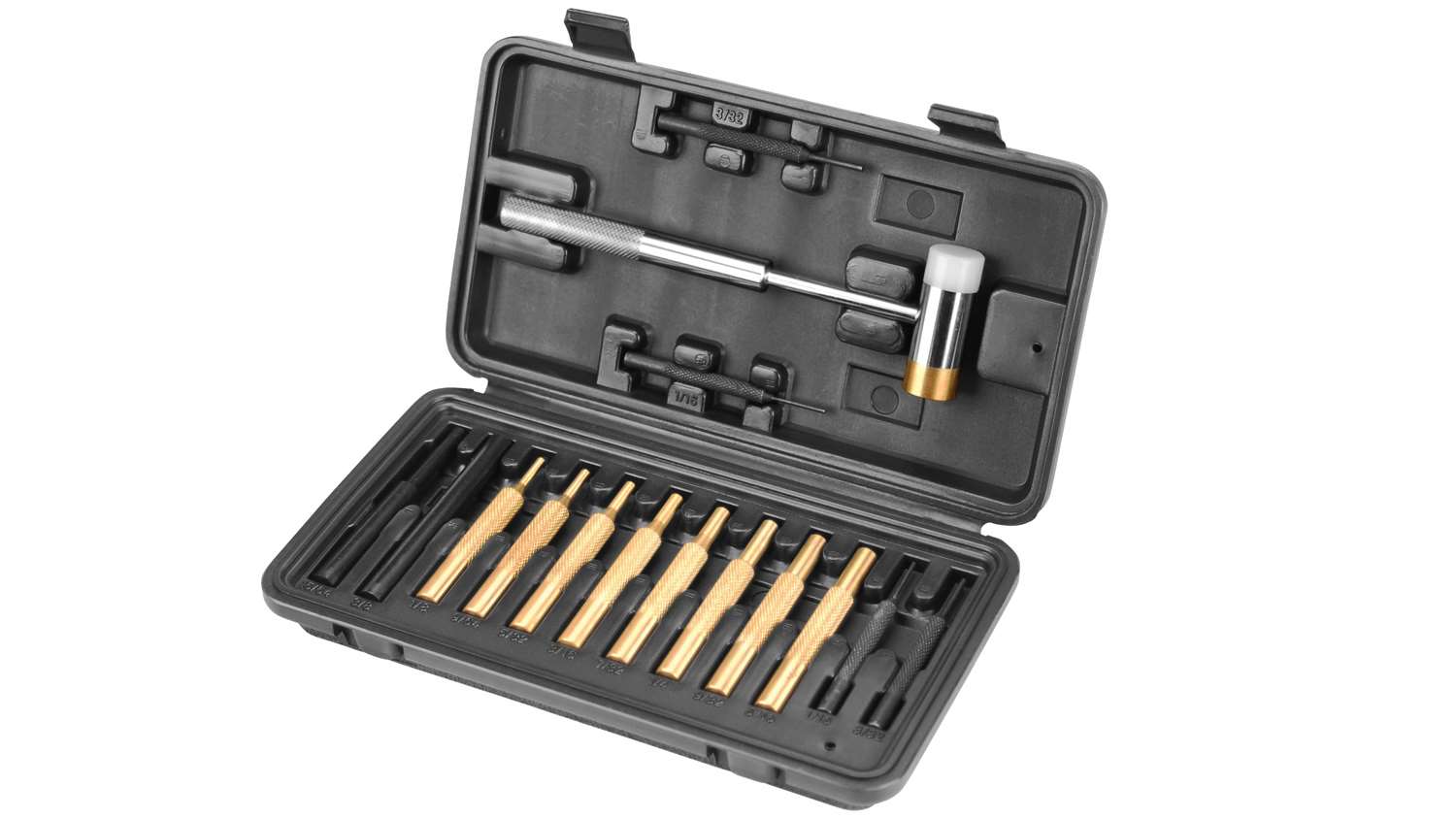
Some of the general tools you'll need for gun work you probably already have in your tool chest, such as a hacksaw and electric drill. Other tools are more specialized. For example, you'll want a pair of precision needle-nose pliers and some parallel-jaw pliers. Moreover, you'll need one or two ball-peen hammers, in four- and eight-ounce weights. For non-marring work, a combination hammer having a brass face on one side and a plastic face on the other is just the ticket. A heavy rubber mallet is useful when you need to pound hard on something without damaging it. Needle-nose and right-angle tweezers are invaluable; have at least one pair that is designed to stay tightly closed unless the jaws are manually forced apart. A sharp-pointed scribe and a circular nylon, polyethylene or steel bench block are useful for driving pins in or out of a frame and such.
Other general-purpose odds and ends you may want to have include cold blue for touching up minor blemishes; Loctite or similar adhesives in both the removable (blue) and permanent (red) strengths; a degreaser such as Birchwood-Casey Gun Scrubber; a trigger pull gauge; a thread checker; a plate with a variety of threaded holes used to determine the thread of an unknown screw; and heavy-duty masking tape for protecting parts from nicks, bumps, or an inadvertent slip with a file or Dremel tool. You'll also need a supply of paper towels for cleaning up spilled stuff as well as clean cotton rags for applying oil, polishing agents and the like, and a shop apron to protect your clothes.
Special gunsmithing screwdrivers work best for removing gun screws. Brownells Magna-Tip set, for example, has Torx, Phillips and hex bits as well as enough flat screwdriver tips to ensure a perfect fit to any screw you encounter.
An extra-long Phillips bit allows you to remove a buttpad without marring the pad surface. Several sets of jewelers' screwdrivers, in flat, Phillips and hex configurations, are handy to use on screws too small for most screwdriver bits. You should also have hex wrenches, in the form of both screwdriver bits and separate L-shaped tools. In American sizes, a set having a range of .050 to 5/16 inch should handle most jobs; 1.5 mm to 10 mm is a useful metric range. Have more than one set of each; sooner or later you'll round the corners of a hex wrench, and be glad to have a backup.
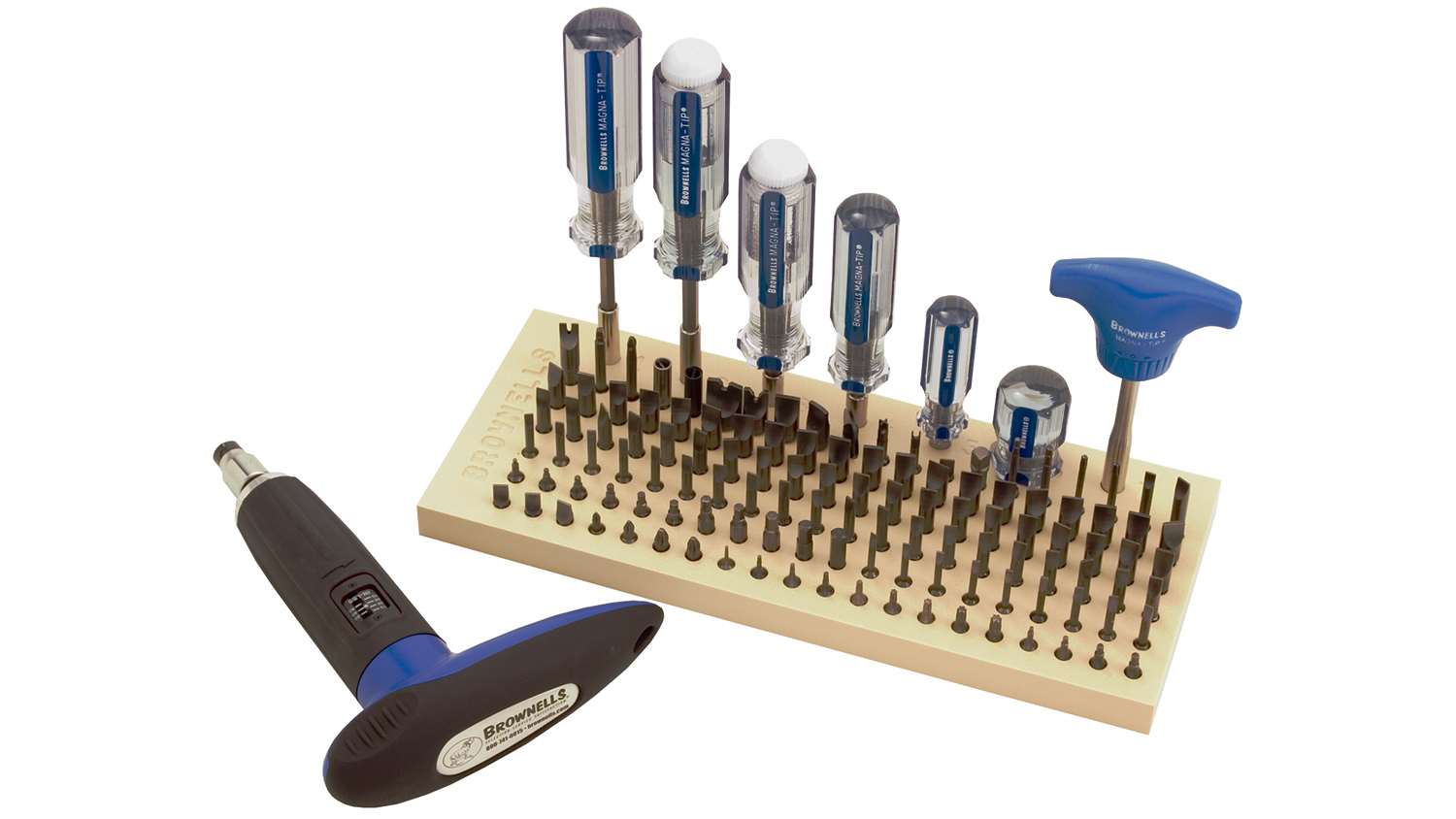
Pins usually retain those gun components that are not retained by screws, and pin punches are needed to remove them. Four sizes—1/16-, 1/8-, 3/16- and 1/4-inch—will cover 99 percent of your gun disassembly work. You should also have brass punches in 1/8- and 1/4-inch sizes; the latter can be used to drift dovetail-mounted sights in and out. Some gunsmiths prefer a nylon sight drift, as brass can leave a gold-colored mark on steel (which can be removed with cold blue).
There are many types of punches: slightly pointed punches for roll pins, cup-end punches for round-headed pins, tapered starter punches that loosen tightly stuck pins, as well as punches used to make a small dimple in steel to locate the tip of a drill bit. While you may get away with using only standard-flat-ended pin punches, in the long run it's better to have the proper type of punch for the job.
Careful measurements are often crucial in gunsmithing work. They may reveal a dangerous level of wear, or an out-of-spec part. The most frequently used measuring tool in gunsmithing is probably the dial caliper, which usually reads from zero to six inches in .001-inch graduations. A normal caliper may cost as little as $30, while one with an electronic readout will cost a bit more and read to the nearest half-thousandth (.0005 inch). Micrometers are essential for ultra-precise measurements of a barrel diameter, metal thickness, bullet diameter, etc. Most for gunsmithing use are electronic and read from zero to one-inch in .0001- or even .00005-inch increments, they are usually expensive. For quick, but less precise measurements, you should have a six-inch steel rule graduated in 32nds or even 64ths, and a 36- to 60-inch steel rule (or even a standard tape measure) for measurements (such as pull length) in which accuracy to the nearest 1/16 inch is sufficient.
Gunsmithing often involves removing metal or wood, or modifying the surface or finish of one or more parts. This is done with a variety of tools. Files may be used to remove or reshape large amounts of metal or wood fairly quickly. For metal working, you should have a a 3/4- to one-inch half-round file; a four- or six-inch barette file with a smooth cut; and several flat files (also called hand or pillar files, depending on width) in lengths from four to 10 inches. Ideally, all the flat files should have at least one safe (non-cutting) edge.
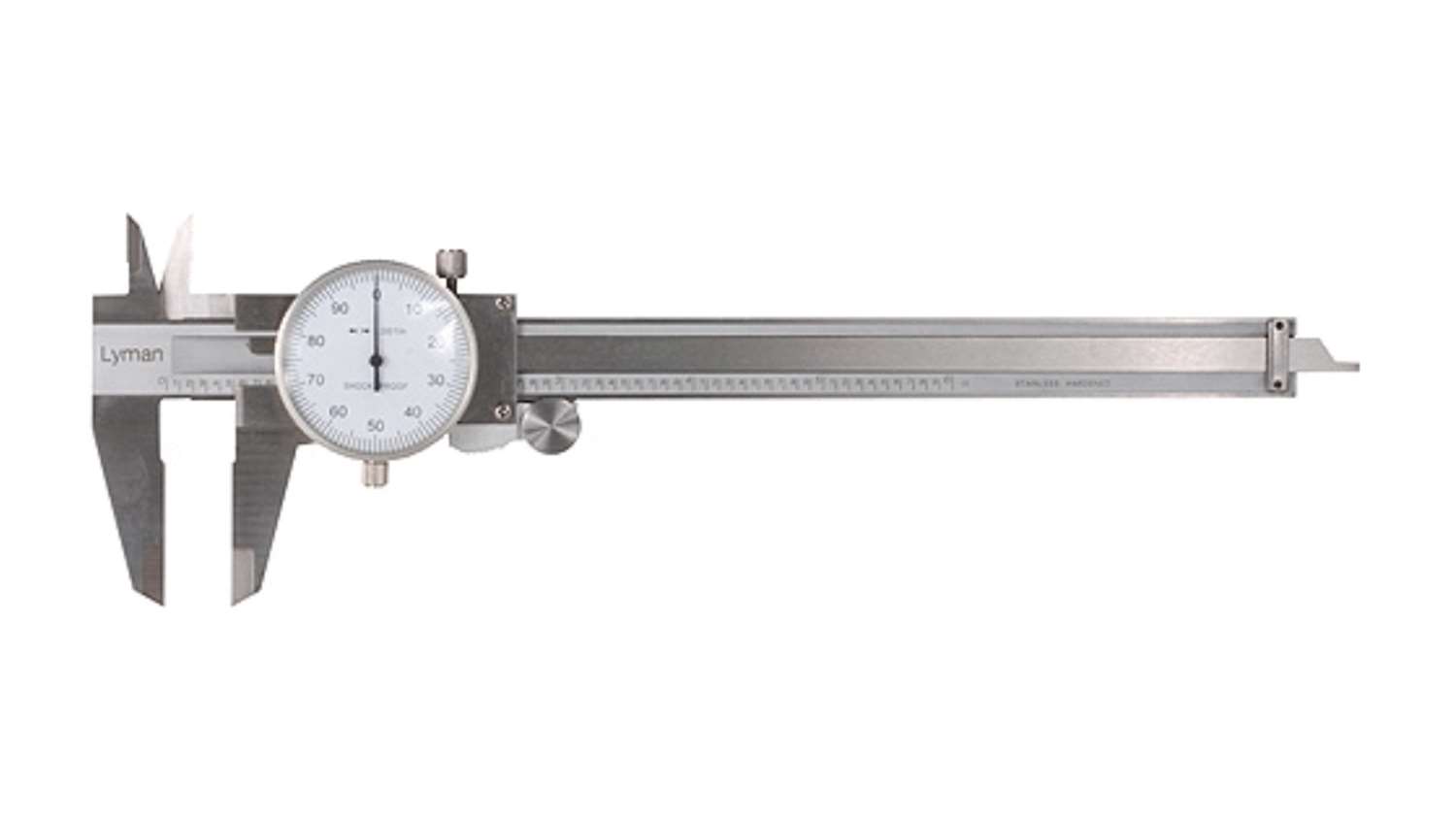
The majority of wood work in gunsmithing involves shaping gunstocks, which in turn requires more round or half-round files and fewer flat ones. Most will be eight to 12 inches long. Metal files and wood files differ in the pattern of their teeth, and most wood files are designed to minimize clogging.
You also should have a selection of stones of different shapes, sizes and types. Hard Arkansas stones have been the standard for decades, but newer man-made ceramic stones give a smoother finish, last longer, and cut with water instead of oil. Most gunsmiths have some of both, in a selection of round, triangular, square and knife shapes.
A Dremel tool (or similar hand-held rotary grinder) is an essential and versatile gunsmithing tool. With a coarse 1/2-inch sanding drum, it can reshape metal faster than a file; yet with a mildly abrasive Cratex wheel it can polish metal to almost a mirror finish. Also available are grinding bits in various shapes, as well as carbide and high-speed steel burrs. The majority of Dremel kits come with a selection of cutting and shaping bits, and additional bits are sold separately.
Abrasive papers are used primarily to polish metal surfaces and to smooth marks made by files or Dremel grinding bits. Your selection should include aluminum oxide sheets in 240, 320, 400, 600, 800, and 1200 or 500 grits. The three finest grits—800, 1200 and 1500—may be available only in a shop that sells auto body paint and supplies. For some jobs, you may also need a rubber sanding block.
A final word: Cheap, poorly made tools can prevent you from doing good work, and should be avoided. On the other hand, having the best tools will not, in itself, guarantee that you'll do first-rate work. You have to know how to use your tools and how to do the job. And so we come to the final gunsmithing tool you must acquire: knowledge.
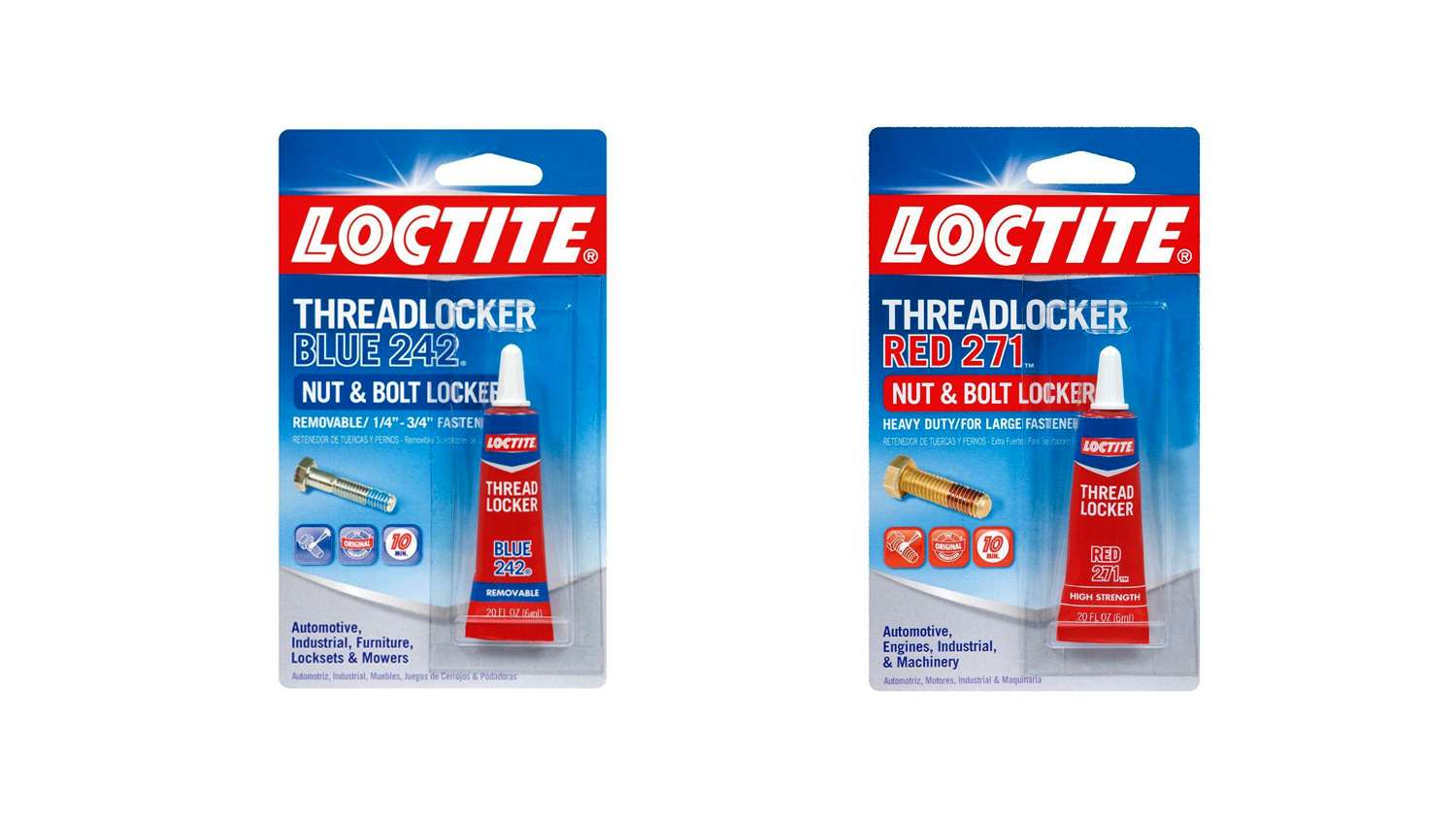
Become a student of the gun: read articles and books on gunsmithing, metalworking, gun mechanisms and the like. Talk to gunsmiths and machinists. Practice with your tools. With care and experience, there is no reason why you can't have the satisfaction of doing professional-quality work in your home workshop.
Essential Tool Sources for the Home Gunsmith
-Brownells—www.brownells.com
-Dillon Precision—www.dillonprecision.com
-Lyman Products—www.lymanproducts.com
-MidwayUSA—www.midwayusa.com









